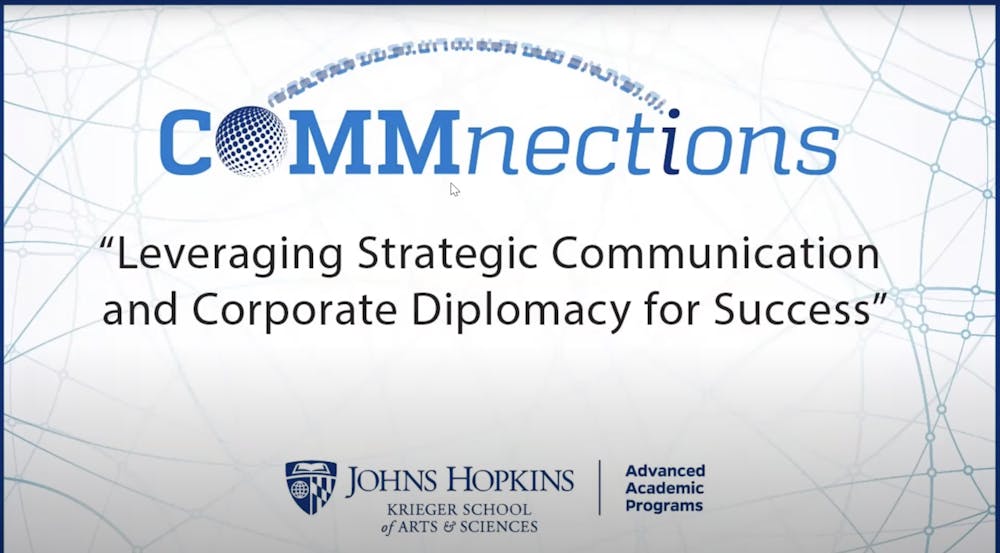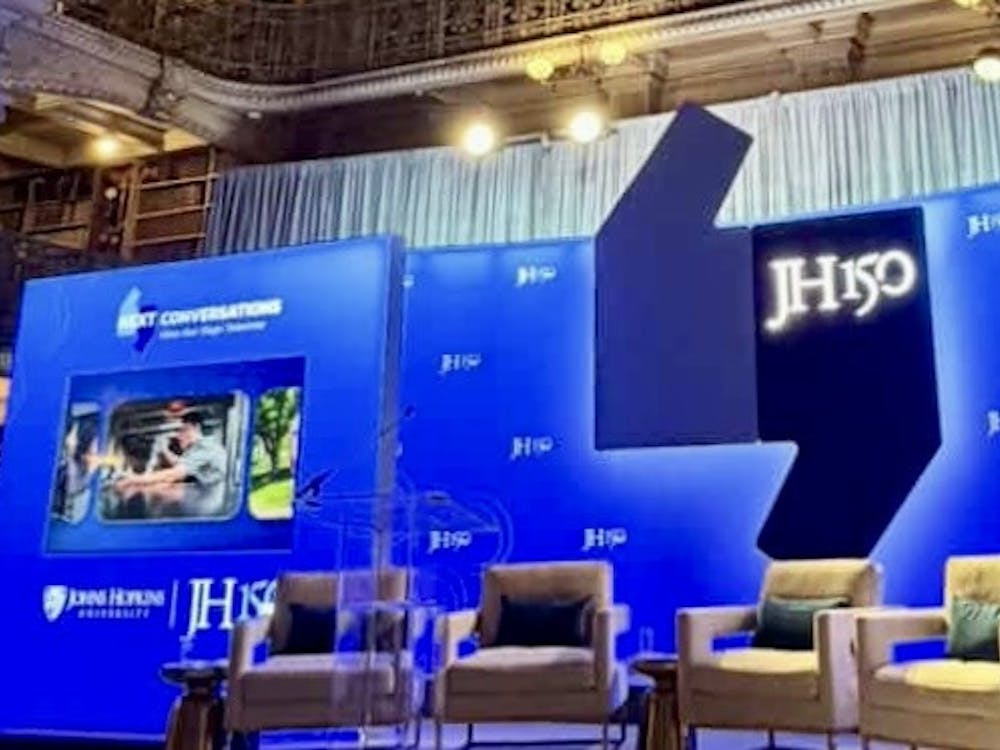On Monday, Sept. 15 Hopkins students, professionals and affiliates gathered for a webinar hosted by the Krieger School of Arts and Sciences Advanced Academic Programs (AAP) titled “Leveraging Strategic Communication and Corporate Diplomacy for Success.” The webinar, which was hosted by Dr. Patricia Hernandez, assistant program director of the Hopkins Master’s in Communication and Hopkins alumna Anna Clark, focused on how communications skills can be used to bolster both corporate responsibility and global leadership efforts.
Clark graduated from Hopkins with a Master of Arts in Communication and now works as communications leader for TERREPOWER, a sustainable manufacturing firm. She started the event with an introduction to what she describes as a world that is increasingly interconnected but also increasingly riddled with challenges such as climate change, automation and a cost-of-living crisis.
“Now, we’re finding that really just about everybody understands the fact that... a crisis in one area is going to affect another,” Clark said.
Clark proceeded to argue in support of a systems thinking mindset — that is, a way of thinking that supports holistic evaluations and understanding of connections — as the approach needed for succeeding in the interconnected world she presented. In Clark’s view, communication is not only a way of conveying ideas, but also of supporting societal change, both on an individual and a corporate level.
Extending her previous point of view, Clark continued on to posit that one’s role in the world should align with the impact they aim to have, or further, the change they intend to make. In a corporate setting, impact can fall under measures such as financial and operational metrics, but it can also encompass social change, environmental responsibility, and a company’s reputation, Clark argued. She also explained that this impact must reach further than words and must be attained through change-making corporate policies and holistic communication strategies.
“Today’s communicators must equip organizations to go beyond selling products and services to embody purpose and service. This is the spirit of corporate diplomacy; essentially, it’s about your role in the world being more than commercial,” Clark elaborated.
After elaborating on a number of the ways corporations can promote change through communication, such as educating, encouraging, and mobilizing, Clark dove into a case study of the company BNSF Railway, describing in detail a number of the policies pursued by the company to promote corporate diplomacy. Clark specifically mentioned how incorporating a multifaceted approach to communications through coalition-building, media outreach and sustainability reporting, among others, allows for BNSF to reach innovative goals unlike others in their industry.
“When you start to understand your role as part of the bigger whole... you can start to see the different areas where you can make a difference,” Clark continued.
Finally, Clark ended her presentation by reminding the audience that applying these communication skills depends heavily on the context of the situation, so in order to utilize these skills successfully, communicators must ensure their messaging is aligned with both their goals and their available resources. However, Clark reassured the audience that employing these skills for the benefit of an organization is a journey that must be taken one step at a time.
“Your path is made by walking... you’re going to guide organizations through the peaks and valleys of a changing world, and you can only do that when you know all the concepts,” Clark said.
In an email to The News-Letter, Hernandez explained that she first met Clark in 2022 via an alumni engagement survey, and upon hearing of Clark’s role at TERREPOWER through LinkedIn, was excited to invite her to the webinar. Hernandez hopes those who attended the webinar developed insight into both their careers and their communication strategies.
“I hope that students take away the importance of research and evidence-based strategic communication,” Hernandez wrote. “In addition, Anna touched on the importance of honing your expertise and being adaptable, as communication roles will shift. A career is a marathon, not a sprint, and a constant learning and evolving process.”
Hernandez also wrote about the specific highlights of AAP’s Master’s in Communication program that allows for students to pursue the effective strategies and diplomacy efforts Clark outlined in the webinar.
“I always tell my students that what will make them stand out from others is the strong emphasis on our evidence-based data-centric approach, with a strong emphasis to research first,” Hernandez wrote. We also weave ethics and social impact into our courses... just today, during my public relations course, we joined the Public Relations Society of America, National Chapter, for a Q and A on Ethics with the current president. We emphasize not only to do good but also to do no harm.”





